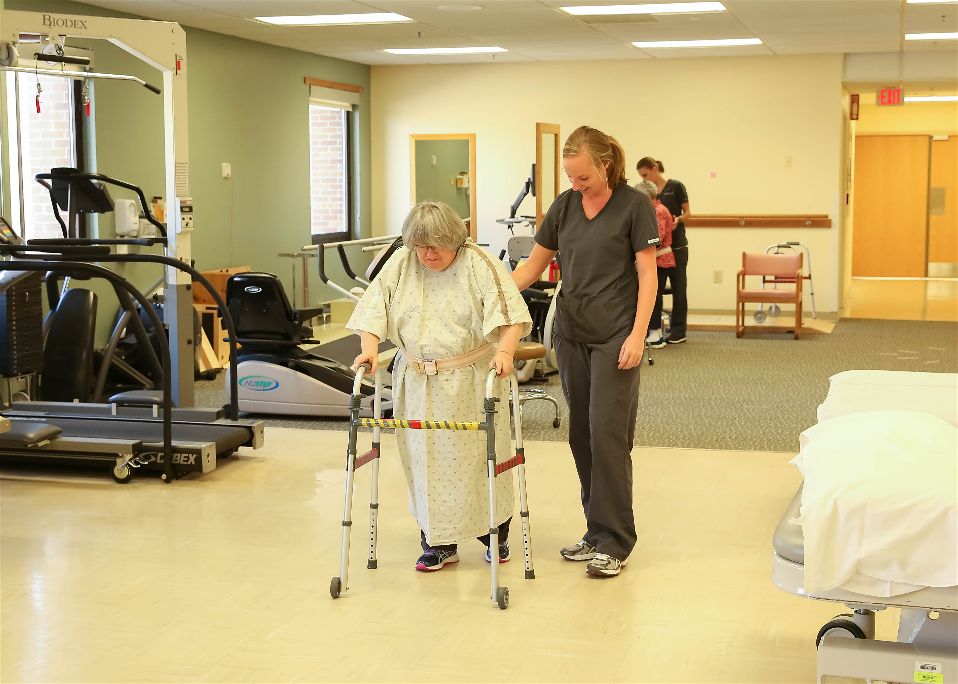Inpatient occupational therapy is a type of therapy that is provided to patients who are hospitalized due to an illness, injury, or surgery. It focuses on helping patients recover and regain their independence in daily activities.
In this article, we will discuss the benefits of inpatient occupational therapy, how it works, and what to expect during treatment.
What is Inpatient Occupational Therapy?
Inpatient occupational therapy is a type of therapy that is provided to patients who are hospitalized due to a variety of medical conditions. It is a holistic approach that focuses on the physical, emotional, and cognitive aspects of recovery.
The goal of inpatient occupational therapy is to help patients regain their independence in daily activities such as dressing, bathing, eating, and grooming.
Benefits of Inpatient Occupational Therapy
Promotes Physical Healing
Inpatient occupational therapy can help patients recover from physical injuries, surgeries, or illnesses. Therapists use exercises, stretching, and other techniques to help patients regain their strength, mobility, and range of motion.
This type of therapy can also help patients manage pain, reduce inflammation, and prevent further injury.
Improves Cognitive Function
Inpatient occupational therapy can help patients improve their cognitive function, memory, and attention. Therapists use activities such as puzzles, games, and memory exercises to help patients regain their cognitive abilities.
This type of therapy can also help patients with neurological conditions such as stroke, traumatic brain injury, and Parkinson's disease.
Enhances Emotional Well-being
Inpatient occupational therapy can help patients improve their emotional well-being by reducing stress, anxiety, and depression. Therapists use relaxation techniques, breathing exercises, and mindfulness practices to help patients manage their emotions.
This type of therapy can also help patients cope with the emotional challenges of living with a chronic illness or disability.
Promotes Independence
Inpatient occupational therapy can help patients regain their independence in daily activities such as dressing, bathing, eating, and grooming. Therapists work with patients to develop skills and techniques that will help them perform these activities safely and independently.
This type of therapy can also help patients learn how to use adaptive equipment and devices to assist them with daily activities.
How Inpatient Occupational Therapy Works
Inpatient occupational therapy is provided by licensed occupational therapists who are trained to help patients recover from injuries, surgeries, or illnesses. Treatment typically begins with an assessment to evaluate the patient's physical, cognitive, and emotional abilities.
The therapist will then develop a personalized treatment plan that is tailored to the patient's individual needs. Treatment may include a combination of exercises, activities, and techniques that are designed to help the patient achieve their goals.
The therapist will work closely with the patient to monitor progress and adjust the treatment plan as needed. Inpatient occupational therapy may also involve the use of adaptive equipment and devices to assist the patient with daily activities.
What to Expect During Inpatient Occupational Therapy
Inpatient occupational therapy typically takes place in a hospital or rehabilitation center. Patients can expect to receive therapy sessions several times per week, depending on their individual needs.
Sessions typically last between 30 minutes to an hour and may involve a combination of exercises, activities, and techniques. Patients can expect to work closely with their therapist to develop skills and techniques that will help them regain their independence in daily activities.
They may also learn how to use adaptive equipment and devices to assist them with daily activities. Patients can expect to be actively involved in their treatment and to play an active role in their recovery.
Conclusion
Inpatient occupational therapy is a valuable form of therapy for patients who are hospitalized due to an illness, injury, or surgery. It can help patients recover physically, emotionally, and cognitively.



